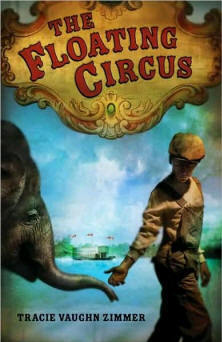"I still get nightmares," begins Johnny Truant, editor of House of Leaves ("House," bởi the way, always colored in blue). He goes on to explain how he stumbled upon the fateful document that would consume him. How Zampanò, an old and eccentric shut-in had left his critique of the Navidson Record scribbled on loose-leaf papers, book covers, and the backs of envelopes and even stamps scattered across his room. Johnny diligently collected all of the papers and organized them into the comprehensive thesis it was meant to be. It is an elaborate and detailed explanation of a documentary that, Johnny discovers, doesn't exist. No matter where he looks, he cannot find the film. But regardless, and for no reason he can remember, he diligently edited this scholarly paper and his footnotes are scattered throughout the novel, sometimes pages long.
But of course, Johnny shares something in common with the Navidson Record in that he doesn't exist either. He is a character created bởi Mark Z. Danielewski to tell the story of House of Leaves, which is really a story-within-a-story. One story deals with Johnny and Zampanò and how the text effects them, especially Johnny. The other story, the Navidson Record, deals with Will Navidson and his companion Karen Green who di chuyển into the House on Ash cây Lane with their two children only to discover an alarming fact: Their house is bigger on the inside than it is on the outside. At first, the discrepancies are small and easy to ignore-- like a quarter of an inch. But soon, the anomaly grows in the form of a room that materializes between the master bedroom and the children's room. A room that, bởi all physical principals, can't exist. This, too, is simply a curiosity to Will Navidson.
And then comes the appearance of "The Five And A Half một phút Hallway" which beckons him into the unknown, an unseen beast lurking deep within the depths of the house, hoặc that may, in fact, be the house itself.
hoặc it could be nothing at all.
House of Leaves is a dizzying tale of disorientation, adventure and the unfamiliar. It delves into the public psyche of our wants and our fears and it doesn't shy away from any topic, no matter how taboo, disturbing, hoặc shocking. On the one hand, it's an honest portrayal of a young man losing his mind. On the other, it's the fascinating horror story of the physically impossible, the uncanny, the unknown and the sheer vastness of our universe. Still more, there is a romantic side to the novel, the ties between Karen and Will, and indeed even between Johnny and Kyrie and whatever other girl Johnny happens to stumble upon on his twisted journey.
It's difficult to describe House of Leaves because it is so many things at once. Even to simplify it into just two plots isn't really doing it justice. But what House of Leaves is most famous for, probably, is the carnival-fun-house way it's written. Footnotes go on for pages, some text is upside down, some text is mirrored hoặc runs up and down the page, some text is in another language. Some find it difficult to digest, others delight in the maze-like way the novel is written. I, for one, think it's genius.
I once đã đưa ý kiến that I would recommend House of Leaves to horror-nuts, code-breakers, mystery-lovers, philosophers, physics majors, puzzle-lovers, film studies experts, sesquipedalians and bibliophiles. But really, it's for anyone with a sense of adventure.
But of course, Johnny shares something in common with the Navidson Record in that he doesn't exist either. He is a character created bởi Mark Z. Danielewski to tell the story of House of Leaves, which is really a story-within-a-story. One story deals with Johnny and Zampanò and how the text effects them, especially Johnny. The other story, the Navidson Record, deals with Will Navidson and his companion Karen Green who di chuyển into the House on Ash cây Lane with their two children only to discover an alarming fact: Their house is bigger on the inside than it is on the outside. At first, the discrepancies are small and easy to ignore-- like a quarter of an inch. But soon, the anomaly grows in the form of a room that materializes between the master bedroom and the children's room. A room that, bởi all physical principals, can't exist. This, too, is simply a curiosity to Will Navidson.
And then comes the appearance of "The Five And A Half một phút Hallway" which beckons him into the unknown, an unseen beast lurking deep within the depths of the house, hoặc that may, in fact, be the house itself.
hoặc it could be nothing at all.
House of Leaves is a dizzying tale of disorientation, adventure and the unfamiliar. It delves into the public psyche of our wants and our fears and it doesn't shy away from any topic, no matter how taboo, disturbing, hoặc shocking. On the one hand, it's an honest portrayal of a young man losing his mind. On the other, it's the fascinating horror story of the physically impossible, the uncanny, the unknown and the sheer vastness of our universe. Still more, there is a romantic side to the novel, the ties between Karen and Will, and indeed even between Johnny and Kyrie and whatever other girl Johnny happens to stumble upon on his twisted journey.
It's difficult to describe House of Leaves because it is so many things at once. Even to simplify it into just two plots isn't really doing it justice. But what House of Leaves is most famous for, probably, is the carnival-fun-house way it's written. Footnotes go on for pages, some text is upside down, some text is mirrored hoặc runs up and down the page, some text is in another language. Some find it difficult to digest, others delight in the maze-like way the novel is written. I, for one, think it's genius.
I once đã đưa ý kiến that I would recommend House of Leaves to horror-nuts, code-breakers, mystery-lovers, philosophers, physics majors, puzzle-lovers, film studies experts, sesquipedalians and bibliophiles. But really, it's for anyone with a sense of adventure.























